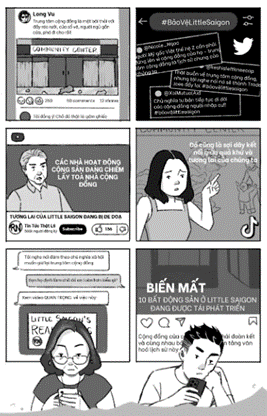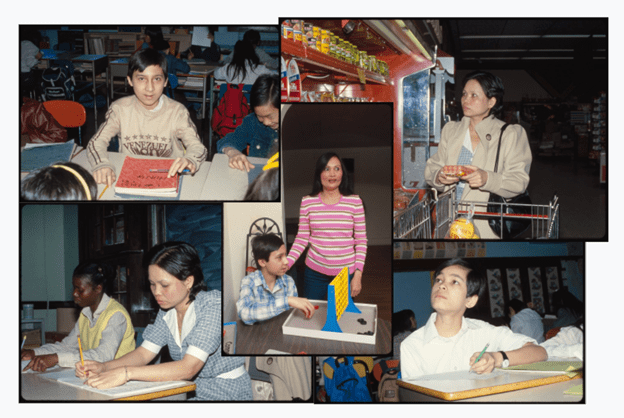A Vietnamese-language version of this blog post is available here: Tiếng Việt
Through analysis of Facebook posts in Vietnamese and focus groups with Vietnamese Americans across two generations and several geographic locations, University of Washington Center for an Informed Public researchers have been exploring the complexities of misinformation, including how a prevalence of intergenerational divides in political information seeking, lasting historical and political traumas of immigration, and language barriers underpin the saliency and impact of misinformation for Vietnamese Americans.
Two recently published peer-reviewed articles, in Political Communication and the Proceedings of the ACM on Human-Computer Interaction (CSCW), contributes to contextual knowledge that helps bring greater sociocultural understanding around how to represent and include immigrant and refugee diasporic communities within research on transnational misinformation around sociotechnical systems.
In “‘We never really talked about politics’: Race and ethnicity as foundational forces structuring information disorder within the Vietnamese Diaspora,” published April 24 in Political Communication, UW Information School doctoral candidate Sarah Nguyễn and CIP postdoctoral scholar Rachel Moran-Prestridge, with Duke University Political Science doctoral student Trung-Anh Nguyen and UW Human Centered Design & Engineering graduate student Linh Bui, share key findings from their work exploring the consequences of misinformation at a familial and community level.
As the co-authors wrote in Political Communication: “This research highlights the need for researchers of misinformation to better attend to the inequities of informational access and the vulnerabilities of already marginalized communities as targets of problematic information and information disorder.”
Moran, Nguyễn and Bui also co-authored a peer-reviewed article, “Sending news back home: Misinformation lost in transnational social networks,” that was published in Proceedings of the ACM on Human-Computer Interaction (CSCW) on April 16.
“Prior research into misinformation has overwhelmingly concentrated on English-speaking communities. As a result, misinformation has proliferated, almost unchecked, in non-English contexts resulting in a dearth of understanding the structures and impact of misinformation among marginalized and immigrant communities,” the co-authors wrote in the article. “Through qualitative coding of social media data and a thematic inductive analysis inspired approach, we investigate how misinformation has proliferated through social media sites, such as Facebook, and the types of informational content, and specific misinformation narratives” that spread across the Vietnamese diasporic community during the 2020 U.S. elections.
 This research, supported by grants awarded through the CIP Innovation Fund and The George Washington University’s Institute for Data, Democracy & Politics, was informed through collaborations with organizations like Viet Fact Check, The Interpreter and other community-led initiatives that provide fact checking and online media analysis in Vietnamese and English.
This research, supported by grants awarded through the CIP Innovation Fund and The George Washington University’s Institute for Data, Democracy & Politics, was informed through collaborations with organizations like Viet Fact Check, The Interpreter and other community-led initiatives that provide fact checking and online media analysis in Vietnamese and English.
Part of this work led to the publication of Changing Tides, an illustrated booklet, in Vietnamese and English, that synthesizes research findings into a fictional narrative. This work was created in collaboration with UW Honors undergraduate, Celestine Le, and UW Fine Arts alumna, Anh Nguyen. Future research will include centering narratives in objects, such booklets, as opportunities to mediate conversations around problematic information. Please keep an eye out on how to get involved with the community participation around Changing Tides!
LEARN MORE
- March 14, 2022 | Harvard Kennedy School Misinformation Review commentary: “Studying mis- and disinformation in Asian diasporic communities: The need for critical transnational research beyond Anglocentrism”
- June 28, 2021 | Center for an Informed Public blog post: “Early findings from explorations into the Vietnamese misinformation crisis”
- 2022 | Asian American Disinformation Table Landscape Report: “Power, Platforms, & Politics: Asian Americans & Disinformation”
Image at top: A collage of Library of Congress archival photos of Vietnamese children of American G.I.s in Rochester, New York.




